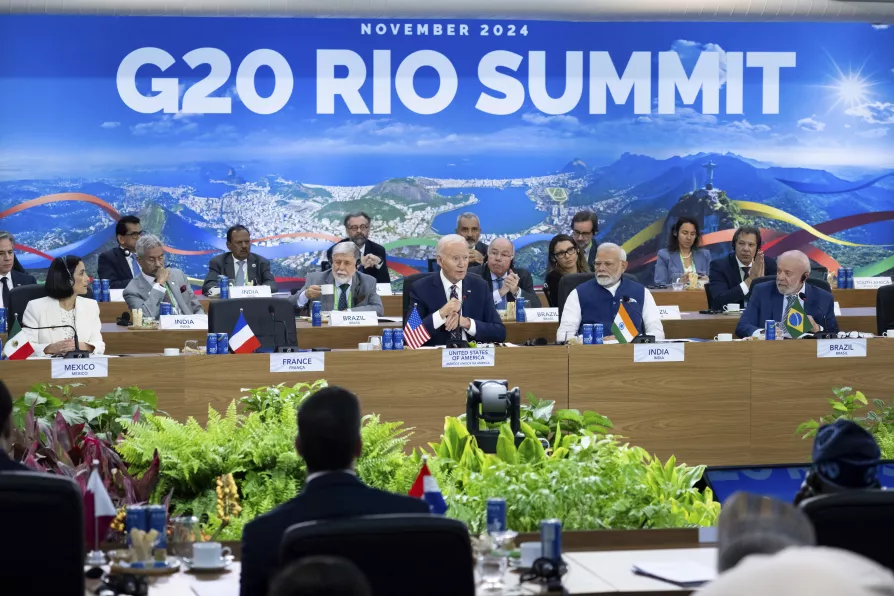G20 leaders issues declaration for global pact to combat hunger and end major wars

 President Joe Biden, Indian Prime Minister Narendra Modi and Brazilian President Luiz In'cio Lula da Silva attend the second day of the G20 Summit at the Museum of Modern Art in Rio De Janeiro, Brazil, November 19, 2024
President Joe Biden, Indian Prime Minister Narendra Modi and Brazilian President Luiz In'cio Lula da Silva attend the second day of the G20 Summit at the Museum of Modern Art in Rio De Janeiro, Brazil, November 19, 2024
LEADERS of the world’s 20 major economies have called for a global pact to combat hunger, more aid for war-torn Gaza and an end to hostilities in the Middle East and Ukraine.
Monday’s joint declaration, which was short on details as to how those goals are to be accomplished, received endorsement from group members but fell short of unanimity.
It also called for a future global tax on billionaires and for reforms to expand the membership of the United Nations security council.
Similar stories














